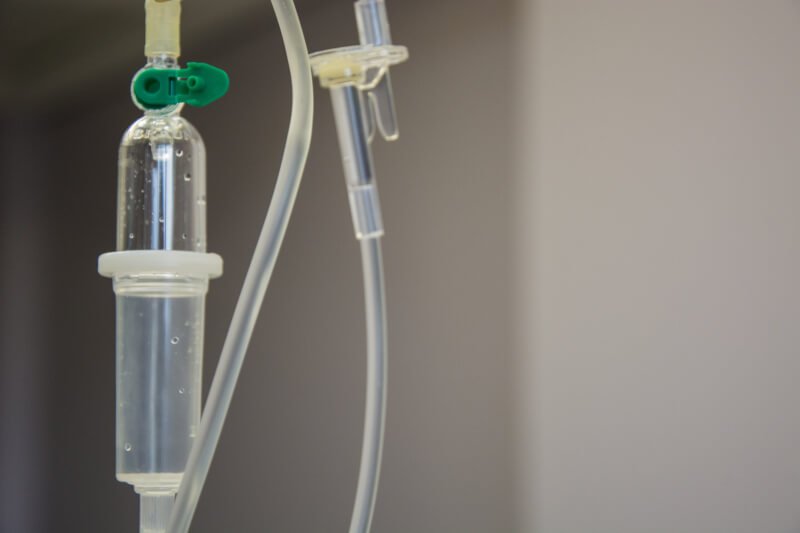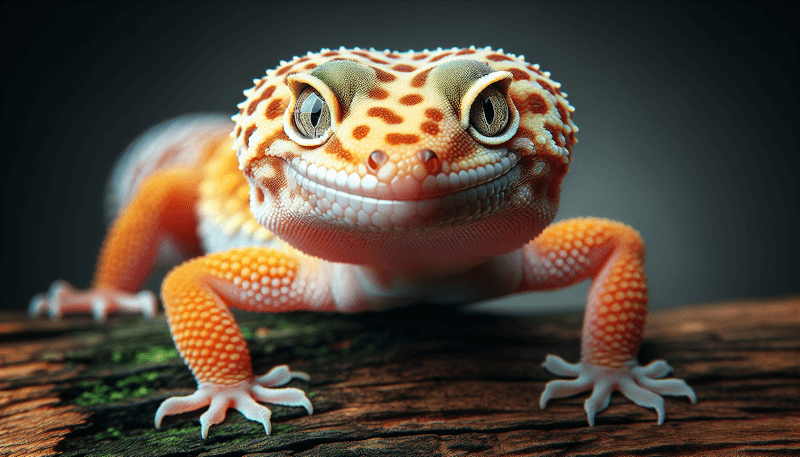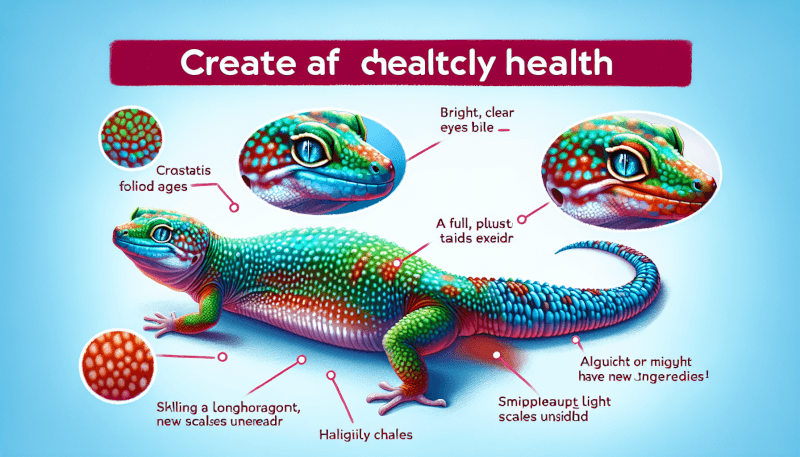Have you ever wondered how to know if your gecko is healthy? It’s important to be able to assess your pet’s well-being and spot any signs of illness early on. In this article, we will explore the key indicators of a healthy gecko, from their physical appearance to their behavior. By familiarizing yourself with these signs, you’ll be better equipped to ensure the well-being and happiness of your beloved gecko.

Physical Appearance
Eyes
When assessing the health of your gecko, one of the first things you should observe is their eyes. Healthy geckos have clear, bright, and alert eyes. Look for any signs of discharge, cloudiness, or swelling, as these could be indications of an underlying health issue.
Ready for Cat Trivia?
Test your knowledge about cats!

Skin
The skin of a healthy gecko should be smooth and free from any abnormalities. It should have a vibrant coloration that is typical for the species. Watch out for any flakiness, redness, or patches of missing scales, as these could be signs of skin issues or parasites.
Tail
The tail of a healthy gecko should be plump and well-rounded. It serves as a reservoir for energy storage, so a thin or wrinkled tail may be a sign of malnutrition or dehydration. Additionally, it is essential to check for any breaks or injuries in the tail, as these could affect your gecko’s overall well-being.
Limbs
Inspect your gecko’s limbs for any swelling, cuts, or bruises. They should be appropriately proportioned, without any signs of lameness or difficulty in movement. Healthy geckos have strong limbs that allow them to climb, jump, and explore their surroundings.
Behavioral Signs
Eating Patterns
Observe your gecko’s eating habits to gauge their overall health. A healthy gecko will exhibit a good appetite and consume an appropriate amount of food for their size. Monitor their feeding habits and ensure they are consuming a balanced diet to support their nutritional needs.
Activity Level
Healthy geckos are generally active and curious creatures. They will explore their enclosure, climb on objects, and exhibit a natural curiosity about their surroundings. If your gecko appears lethargic, unresponsive, or spends an excessive amount of time hiding, it may be an indication of an underlying health issue.
Bathroom Habits
Monitor your gecko’s bathroom habits to ensure they are properly eliminating waste. Healthy geckos will have regular bowel movements that are not excessively watery or dry. Any changes in color, consistency, or the presence of blood in their feces should be investigated further.
Interaction with Humans
Geckos can develop bonds with their human caretakers. A healthy gecko will display curiosity, trust, and a willingness to interact with you. They may tolerate handling, climb onto your hand, or show interest in their surroundings. However, each gecko has its own personality, so it’s essential to understand and respect their individual preferences.
Hunting Behavior
Although many pet geckos are fed pre-packaged or live insects, they still retain their natural instinct to hunt. Engaging in hunting behavior, such as stalking or pouncing on prey, demonstrates a healthy level of activity and mental stimulation. However, if your gecko shows no interest in hunting or has a decreased appetite, it could be a sign of an underlying health issue.
Vocalization
Normal Gecko Sounds
Geckos are known to communicate through various vocalizations. These can include chirping, clicking, or squeaking sounds. These vocalizations are a normal part of gecko behavior, particularly during courtship or territorial disputes. Familiarize yourself with the typical sounds your gecko makes to establish what is considered normal for your pet.
Abnormal Noises
While certain vocalizations are expected, it is crucial to pay attention to any unusual or excessive noises coming from your gecko. Wheezing, raspy sounds, or continuous clicking may indicate respiratory issues or other health concerns. If you notice any abnormal noises consistently, it is recommended to consult a veterinarian for further evaluation.
Shedding
Frequency
Shedding, or molting, is a natural process for geckos to replace old skin. The frequency of shedding varies among gecko species, with some shedding every few weeks and others shedding less frequently. Generally, healthier geckos will have regular shedding patterns without complications or extended periods between molts.
Ease of Shedding
A healthy gecko will shed its skin effortlessly, and the process should be completed within a reasonable timeframe. The shed skin should come off in one piece, including the tail if your gecko is tail-dropping species. Difficulty in shedding or incomplete shedding can indicate dehydration, nutritional deficiencies, or improper humidity levels in their enclosure.
Retained Shed
Sometimes, geckos may experience difficulties shedding, resulting in retained shed. This occurs when pieces of old skin remain stuck on their body, particularly around the toes or tail. Retained shed can lead to constriction, cutting off blood circulation and causing serious health issues. Regularly monitor your gecko’s shedding process and assist with the removal of any retained shed if necessary.

Diet and Hydration
Food Preferences and Variety
Geckos have specific dietary requirements that must be met for optimal health. Research your gecko’s species and provide a varied diet of appropriately sized and nutritionally balanced insects. Additionally, some geckos may require supplementation with calcium and vitamins to prevent deficiencies. Ensure you are providing a diverse range of suitable foods to meet their nutritional needs.
Appetite
A healthy gecko will have a regular and healthy appetite. They should eagerly accept food and consume an appropriate portion size. If your gecko consistently refuses food or shows a significant decrease in appetite, it may indicate an underlying health issue that should be addressed by a veterinarian.
Water Intake
Proper hydration is crucial for the well-being of your gecko. Ensure fresh water is available at all times in a shallow dish that is easily accessible to your pet. Monitor their water intake and be mindful of any changes, as a sudden increase or decrease in thirst could indicate an underlying health concern.
Weight and Size
Weighing Method
Regularly monitoring your gecko’s weight is an effective way to assess their health. Use a digital scale specially designed for weighing small animals and ensure it provides accurate readings. Gently place your gecko on the scale, ensuring their safety and comfort during the process.
Growth Rate
Geckos, particularly younger ones, will go through a period of rapid growth. Monitoring their growth rate can give you insights into their overall health and development. Ensure your gecko has a proper diet and monitor their weight gain to ensure they are growing at a healthy and consistent rate.
Body Proportions
A healthy gecko will have proportional body features. Check for any abnormalities or deformities that may affect their movement or overall well-being. Abnormal proportions, such as an excessively large or small head, may indicate genetic or nutritional issues that should be addressed.

Respiratory Health
Ease of Breathing
Observing your gecko’s breathing patterns can provide valuable information about their respiratory health. Healthy geckos should breathe effortlessly and without any signs of distress. Quick, shallow breathing or respiratory difficulties, such as gasping or wheezing, may suggest a respiratory infection or other respiratory issues.
Breathing Noises
While some gecko vocalizations are normal, persistent or abnormal breathing noises should not be ignored. Clicking, crackling, or wheezing sounds during breathing may indicate an underlying respiratory condition. If you notice any unusual sounds during your gecko’s breathing, seek veterinary assistance to ensure their well-being.
Respiratory Infections
Respiratory infections can occur in geckos and should be taken seriously. Common symptoms include open-mouth breathing, excessive mucus or discharge from the nose or mouth, as well as lethargy. If you suspect your gecko may have a respiratory infection, seek immediate veterinary care.
Appearance of Feces
Color
The color of your gecko’s feces can provide insights into their health. Healthy feces should have a consistent color that is typical for your gecko’s species. Any drastic changes in color, such as blood, excessive mucus, or discoloration, could indicate digestive issues or underlying health problems.
Consistency
The consistency of your gecko’s feces should be formed, moist, and easily expelled. Diarrhea or constipation can be signs of a digestive problem or inadequate hydration. It is crucial to monitor any changes in your gecko’s feces and consult a veterinarian if you notice persistent abnormal consistency.
Frequency
Healthy geckos will have regular bowel movements, and the frequency can vary depending on their diet and metabolism. Monitor your gecko’s bathroom habits to establish their typical pattern. Consistent abnormalities, such as prolonged periods without bowel movements or excessive frequency, may require professional evaluation.

Mental Stimulation
Enrichment Activities
Providing mental stimulation is essential for the overall well-being of your gecko. Offer a stimulating environment with hiding spots, climbing branches, and opportunities for exploration. Introduce interactive toys or puzzles suitable for geckos to keep their minds engaged and prevent boredom.
Response to Environment
A healthy gecko will display curiosity and alertness. Observe how your gecko interacts with their environment, showing interest in their surroundings, and displaying an appropriate reaction to stimuli. Lack of response or excessively timid behavior may indicate stress or underlying health issues.
Overall Vitality
Energy Levels
A healthy gecko will demonstrate consistent energy levels. They should be active, alert, and show a natural curiosity about their environment. While individual geckos may have different activity levels, a notable decrease in energy or a constant lethargic state can be indicative of underlying health concerns.
Curiosity
Curiosity is a desirable trait in a healthy gecko. They should explore their surroundings, investigate new objects, and show an interest in their environment. Maintaining an enriching environment and observing your gecko’s level of curiosity can be an excellent indicator of their overall vitality.
Alertness
Healthy geckos will be alert and aware of their surroundings. They should respond to stimuli appropriately, such as movement or the presence of food. If your gecko displays a lack of responsiveness, appears disoriented, or doesn’t react to external stimuli, it may be a sign of an underlying health issue.
Conclusion
Evaluating the physical appearance, behavior, vocalizations, shedding, diet and hydration, weight and size, respiratory health, appearance of feces, mental stimulation, and overall vitality of your gecko can provide valuable insights into their health. Regular observation, proactive care, and seeking veterinary assistance when necessary will help ensure your gecko maintains a healthy and happy life. Remember, every gecko is unique, and understanding their individual needs is essential for their well-being.



